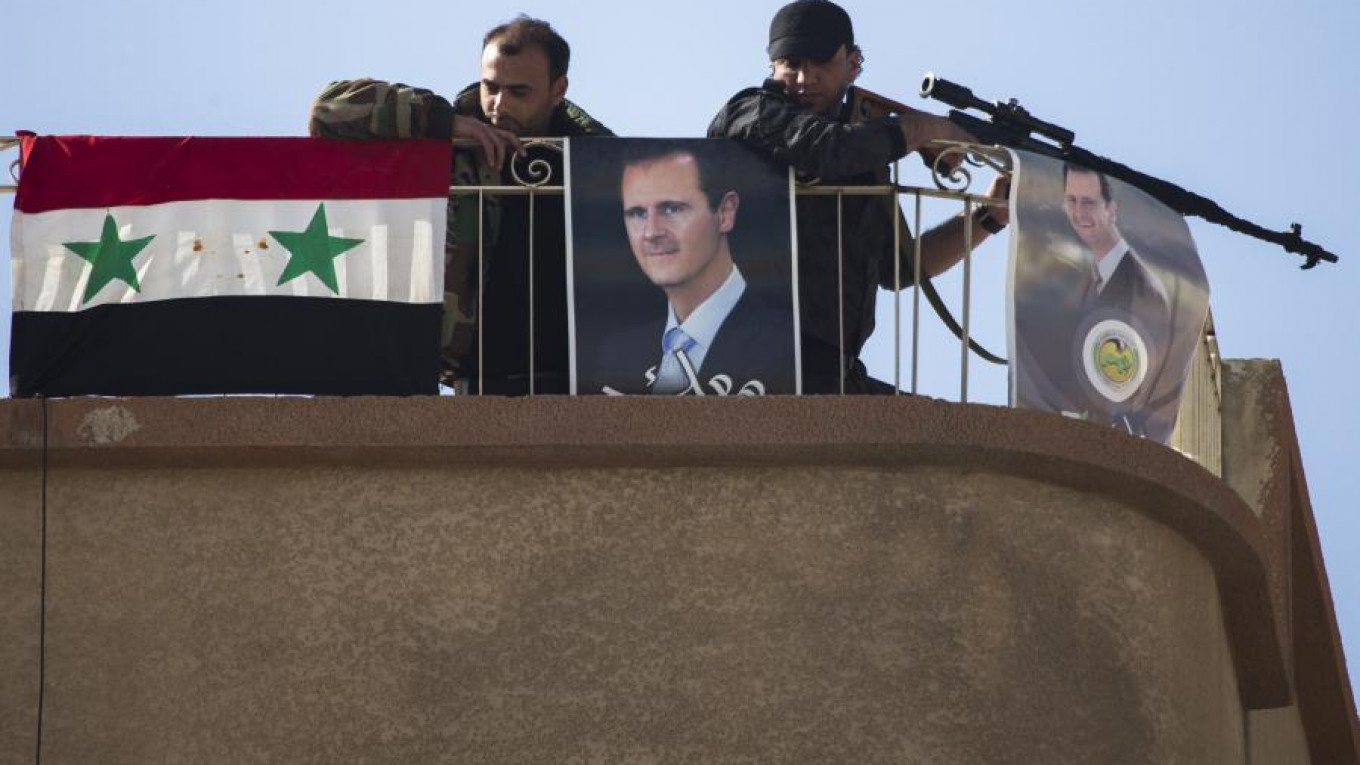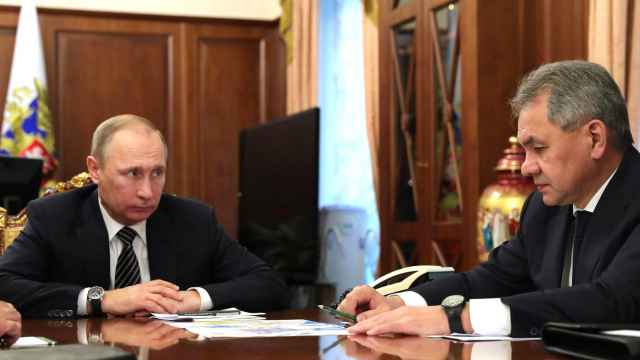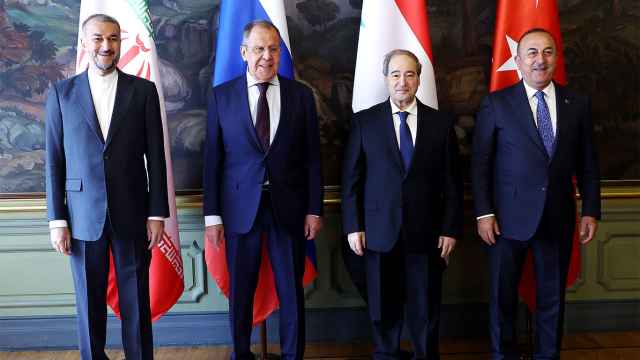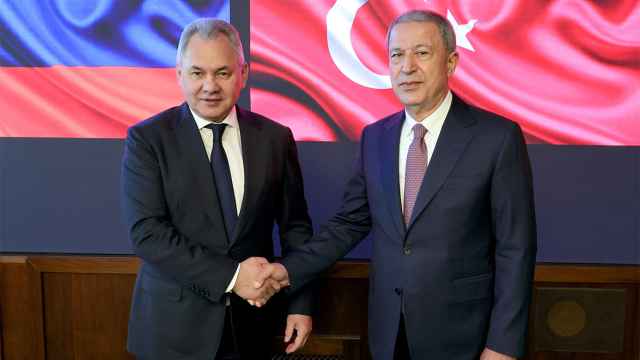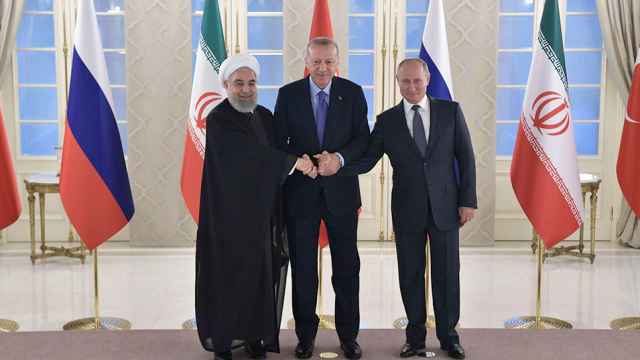The new Syrian cessation of hostilities agreement – fashioned yesterday by Russia and Turkey, after two months of secret talks in Ankara with the main rebel factions – is a very significant development that may help end the war. It reflects a new stage in the conflict, where the external allies of the warring parties have decided to impose a political solution that reflects the front-line realities. It also reflects a paradigm shift in the geopolitics of the Middle East, where the newly minted Russia-Turkey-Iran axis replaces the U.S. as the indispensable power broker.
Russia’s holiday season peacemaking shows Moscow’s desire to extricate itself from the Syrian meat grinder in time for the Russian presidential elections. Awkward questions of what the Kremlin is actually doing in Syria have been raised increasingly vocally in Russia. It is preferable to discuss Syria during the presidential campaign as one of Putin’s complete victories with Russian forces no longer engaged in the brutal fighting. Moscow is keenly aware of what Iraq did to George W. Bush’s presidency and does not want to own Syria “from here to eternity.”
The new cessation of hostilities agreement stands a better chance of being implemented than the previous ones in 2016, negotiated between Russia and the United States. The Assad regime has just won the decisive battle of Aleppo and can afford to engage in political talks from a position of strength (it can push for a complete military victory at any time if the talks fail), while the armed rebel groups have suffered significant territorial losses and a drastic reduction in arms supplies from their foreign backers (disillusioned by the rebellion's defeat).
For the opposition, any relief from the bombing is a good deal. The agreement extends to all major rebel groups, including the powerful Islamists from Ahrar al-Sham and Jaish al-Islam, whom Russia has recently sought to label as terrorists, and to all territories, including Idlib and Eastern Gouta, despite the regime’s desire for a new offensive to defeat the rebels there.
Yet, the agreement suffers from some of the same flaws that helped unravel its predecessors.
There is already a dispute as to whether the new cessation of hostilities extends to the local Al Qaeda affiliate Jabhat Fateh al-Sham (JFS, formerly the “Nusra Front”), which is powerful in Idlib province and whose fighters are interspersed with the rebel factions. Moscow is adamant the cessation of hostilities does not cover the groups the UN recognizes as terrorist (ISIS and Nusra), while Damascus says it also does not cover “groups linked to terrorists,” a loose definition that could allow Assad to bomb at will whomever he wants. The rebels believe the agreement should cover JFS so as not to give the regime the legal excuse to keep bombing the rebel held areas. Ahrar al-Sham is already threatening to pull out of the agreement if that demand is not met.
A way to resolve this would be for Russia to essentially take over the Syrian Air Force and exercise tight control over the target selection process, as was envisioned by the U.S.-Russia agreement of September 9. The new agreement also does not cover the Kurdish YPG and SDF forces, whom Turkey labels as terrorist, but who are the principal U.S. allies in the offensive against ISIS.
The cessation of hostilities agreement also includes a commitment from the regime and the rebels to meet in January in Astana, Kazakhstan for talks on the political settlement. Russia, Turkey, and Iran, as co-sponsors of these talks, are essentially hijacking the peace process from the UN and the Syria International Contact Group that includes the U.S. (as a co-chair with Russia), the EU, Saudi Arabia, and Qatar. Russia and Iran view the new format as more effective, since it excludes the powerful opposition backers that insisted on Assad’s immediate ouster. It is still likely that the talks will seek a solution based on the principles of the UN Geneva process and the political targets and time-frames for the transition enshrined in the Geneva Communique and UN Security Council Resolution 2254. These call for a transition of power from Assad to a new governing authority that would adopt a new constitution and hold democratic elections.
It has been reported that Russia and Turkey will push for a soft partitioning of Syria into a confederate structure. In such a system, Assad’s powers would be drastically cut, but he would be allowed to serve out his term until May 2018 and then depart with dignity and security for his family. Those are ambitious goals and it is not at all clear whether Assad agrees to them (most likely not).
Russia is enjoying an added geopolitical and propaganda bonus of having marginalized the Obama administration into a passive bystander in Syria, with negative strategic implications for the U.S. position in the Middle East. The new agreement is between the powers who “have skin in the game" in Syria, who have invested military assets on the ground. Under Obama, Washington has been divesting itself of the Syrian mess since 2015, and its current isolation is logical. Yet, this is also Putin’s personal revenge on Obama for having labeled Russia a “declining” and “regional” power. With the Russia-Turkey-Iran axis, it is the U.S. that is the declining power in the Middle East.
However, after the fait accompli in Syria, the Kremlin is eager to bring in the Trump administration as a partner in the war on Islamic radicalism and as a political ally to goad the EU and the Saudis into a reconstruction plan for post-war Syria. This will suit Trump just fine.
A Message from The Moscow Times:
Dear readers,
We are facing unprecedented challenges. Russia's Prosecutor General's Office has designated The Moscow Times as an "undesirable" organization, criminalizing our work and putting our staff at risk of prosecution. This follows our earlier unjust labeling as a "foreign agent."
These actions are direct attempts to silence independent journalism in Russia. The authorities claim our work "discredits the decisions of the Russian leadership." We see things differently: we strive to provide accurate, unbiased reporting on Russia.
We, the journalists of The Moscow Times, refuse to be silenced. But to continue our work, we need your help.
Your support, no matter how small, makes a world of difference. If you can, please support us monthly starting from just $2. It's quick to set up, and every contribution makes a significant impact.
By supporting The Moscow Times, you're defending open, independent journalism in the face of repression. Thank you for standing with us.
Remind me later.



